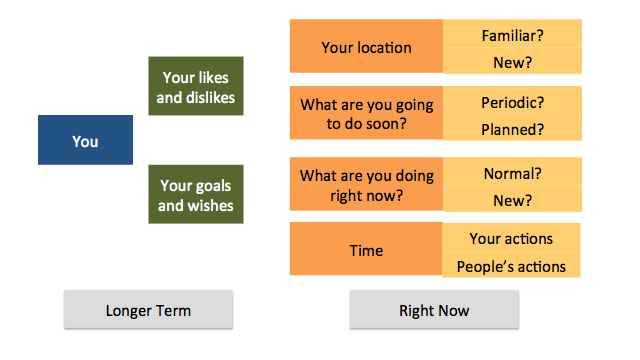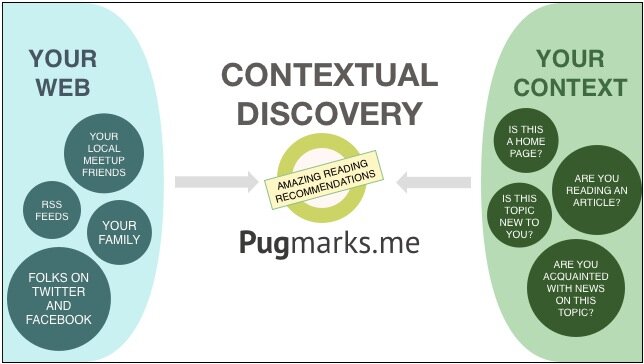
Context comprises of things that help put into perspective where we are, and what we're doing.

Traditional modes for discovery: We are traditionally used to discovering content through publishers and blogs. Large publishers tend to publish content that the masses will like. Niche blogs concentrate on specific topics. Aggregators and readers help deal with their increasing number.
Social discovery: We also discover content through our social networks. Having people we trust endorse content helps us discover new content and sources more efficiently while ensuring quality.
Discovery around our daily activities: While its great (and necessary) to discover world events, and breaking news in our industry, discovery around what we actually do on a daily basis i.e. aspects related to our work, gets little to no attention.
Continuous discovery: When we do actually discover something we like, its hard to dig deeper into topics and get everything there is to know about these topics
Richness in Context: For a system to facilitate discovery around micro interests and daily activities, inferring your context and understanding it is necessary.
Pugmarks understands context - what you like to read, the sources you trust and follow, your daily work, and the information you consume around it - and provides continuous discovery.

While reading on the web, your context can be inferred via various signals.
Some, by the virtue of the page you are reading -
Pugmarks has the ability to understand your context on and . On , Pugmarks is a browser extension. On , Pugmarks is a standalone browser with in-built discovery capabilities.

A system that understands context of a user, and suggests useful actionables in the form of recommendations is a Context Engine.
Such an engine -
Pugmarks is a context engine, that uses smart algorithms for context understanding, design innovation for seamless interaction, and advanced technology to balance privacy and security considerations of users.